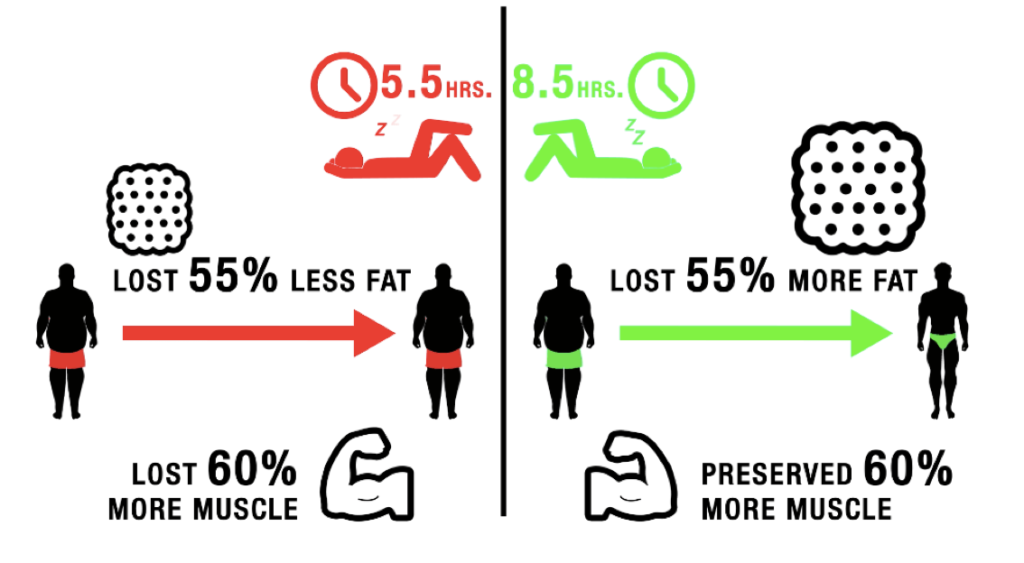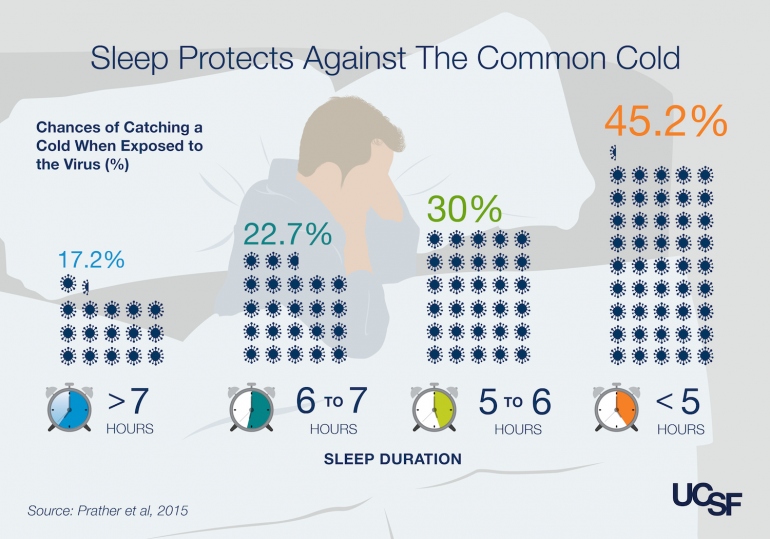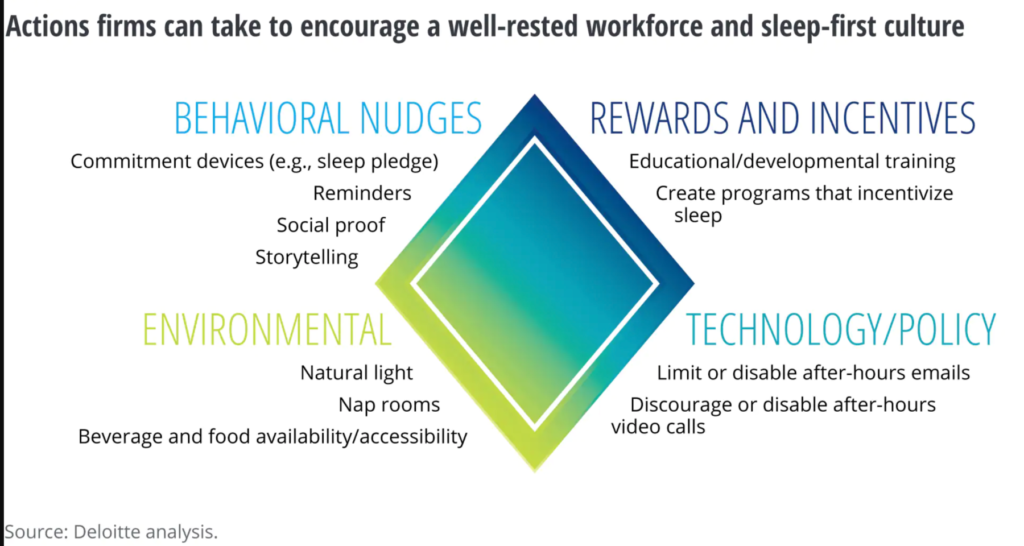Most companies’ corporate wellness programs focus on physical fitness. But, quite often, they often don’t prioritize the other pieces of the wellness puzzle – nutrition and sleep. According to the Institute for Health Metrics, poor nutrition has nearly three times the impact on health as low fitness. But, you can’t out eat or out exercise poor sleep. Lack of sleep hinders every area of your employee’s life.
Poor Sleep and Health
Heart Health:
A 2011 study tracking more than ½ million men and women of varied races, ages and ethnicities across 8 different countries found shorter sleep was associated with 45% increased risk of developing/or dying of heart disease.
Body Weight:
Inadequate sleep impacts hunger hormones making us hungrier and harder to feel satisfied. In a 2011 study, getting less than 6 hours of sleep hindered both body fat loss and muscle mass retention.

Immune Function:
Immune function has also been shown to be compromised with less than 7 hours of sleep a night making it easier to catch your colleagues cold (hopefully… just a cold!)
Gut Health and Diabetes:
-
compromise the makeup of healthy bacteria in our gut
-
increase micro-organisms in the microbiome linked specifically to obesity and type 2 diabetes
-
decrease in insulin sensitivity
The “COST” of Sleep-Deprived Employees to Companies.
Yes, sleep deprived companies may lose money. In Matthew Walker’s book, Why We Sleep he mentions a study across four, large US companies who lost $2000-$3,500 in productivity due to sleep deprivation. But, wouldn’t it be nice to work for a company who prioritized the health of employees over “perceived” productivity.
How A Corporate Wellness Program Can Support Sound Sleepers
Deloitte Insights provides a strategic actions that companies can take to support well-rested employees in four different areas.
Provide Breaks for Light and Air (Environmental)
Exposure to natural daylight not only may boost energy, but it can also help us improve our abilities to fall asleep at night. Position desks towards window, open up blinds and encourage employees to take mini breaks through the day to get fresh air and soak up the sun. The opposite of this? Back to back zoom meetings with little to no time in between.
Encourage Healthy Boundaries to Keep Work at Work (Policy)
Quality work trumps quantity. Help employees establish separation between office and home life to reduce stress and encourage better sleep. Round the clock emails or texts make this challenging. And higher up employees should lead by example. Remember, quality sleep equals quality work.
Create Sleep Challenges (Behavioral Nudges)
The “no sleep” bragging because you were up late working isn’t so cool anymore. Change the conversation and create corporate wellness program challenges to encourage positive sleep cultures. Have employees log sleep (lots of apps they can use for fun) and reward those who get 7-8 hours per night. You can even do it for one week per month if you find the competition helpful. Monitoring their sleep helps make employees aware of how they’re sleeping, so they can make improvements where needed.
Bring Educated Conversations to Your Corporate Wellness Program (Rewards and Incentives)
Did you know McDaniel Nutrition offers Wellness Webinars dedicated to sleep? In our webinars we cover the health benefits of sleep, and how to set up a sleep routine that works. It all starts with making sleep a priority. And, realizing that just because one may label themself as a “poor sleeper” doesn’t mean they have to live that way.
If you’re interested in bringing our “Guide To A Better Night’s Sleep” to your workplace, contact us!




